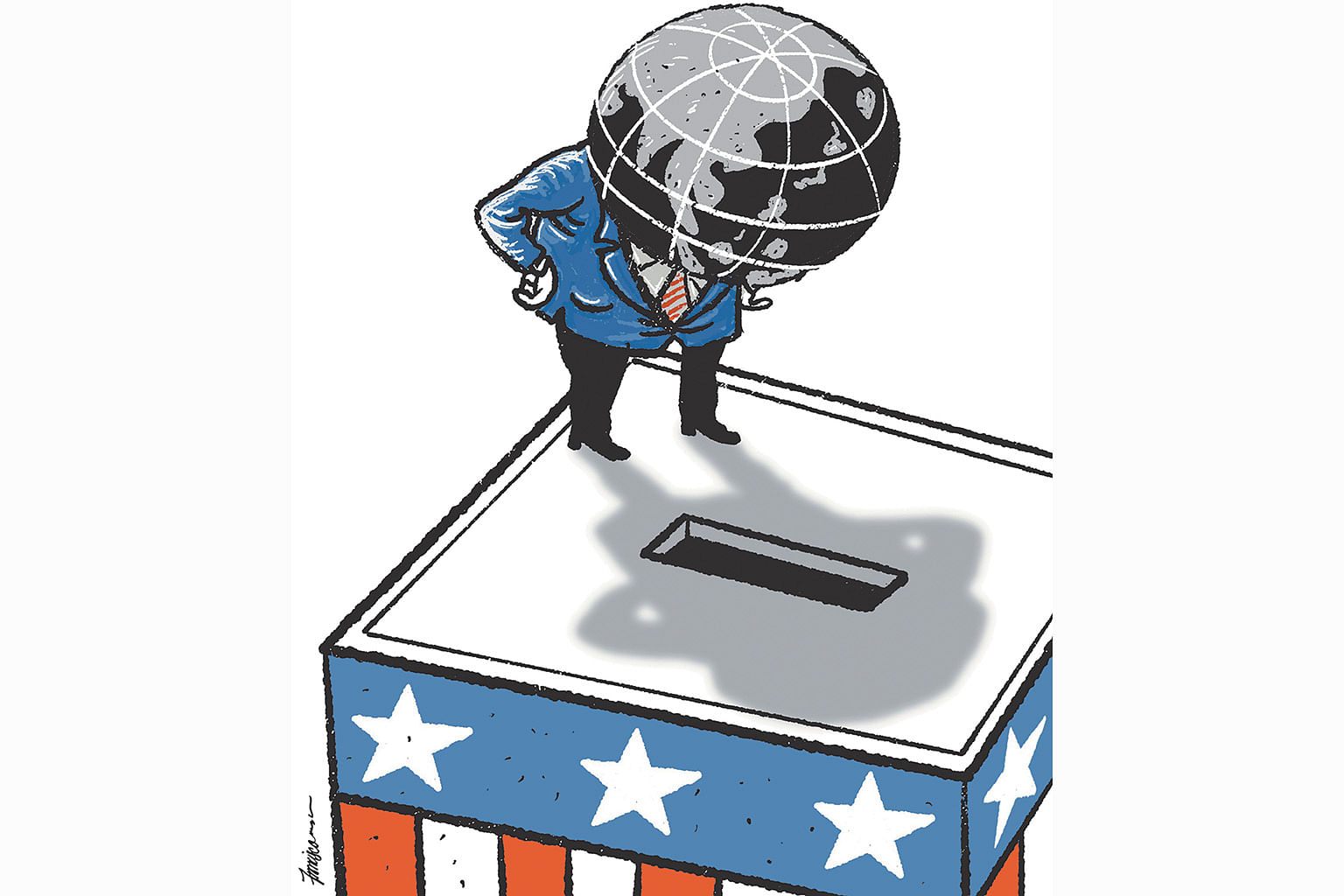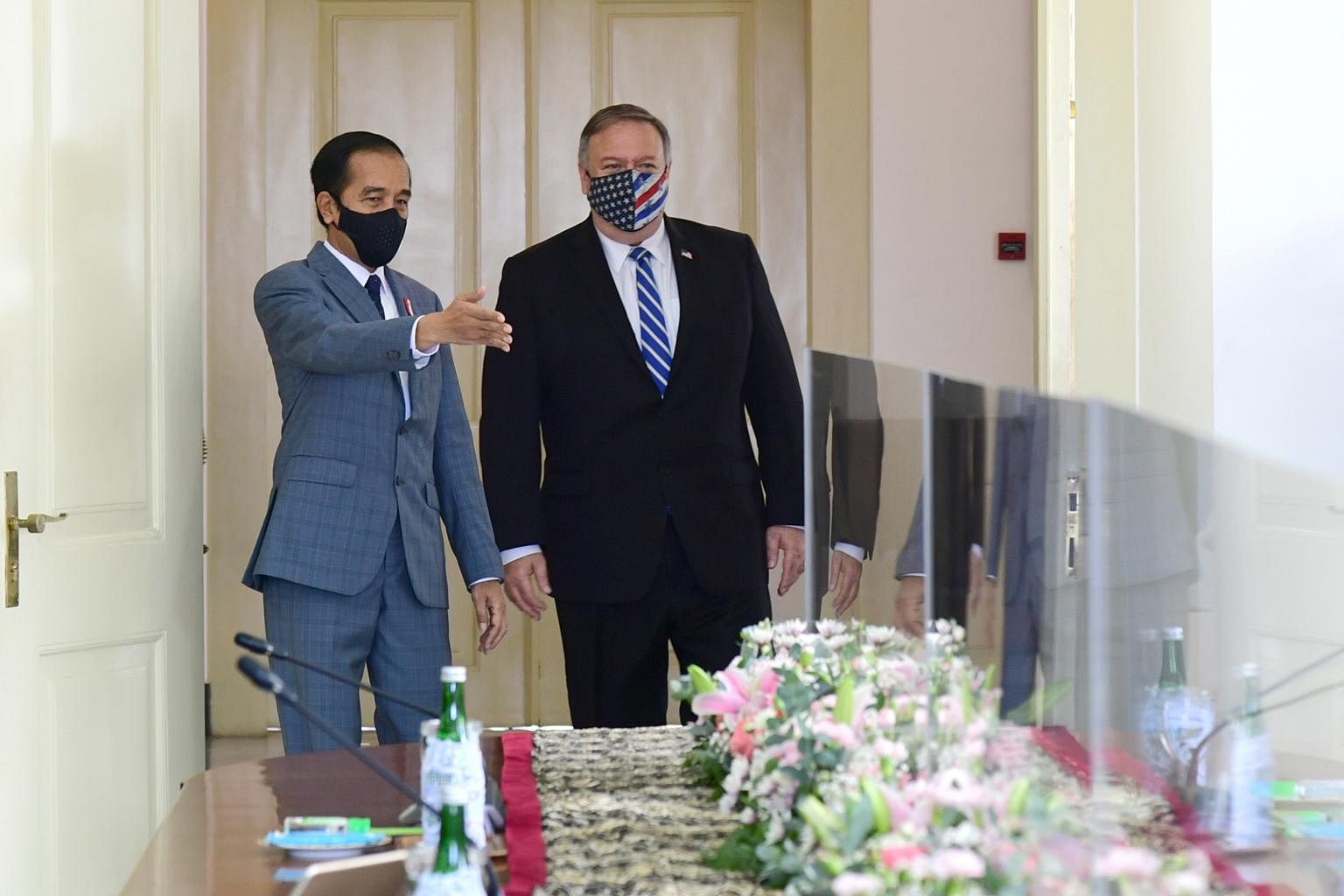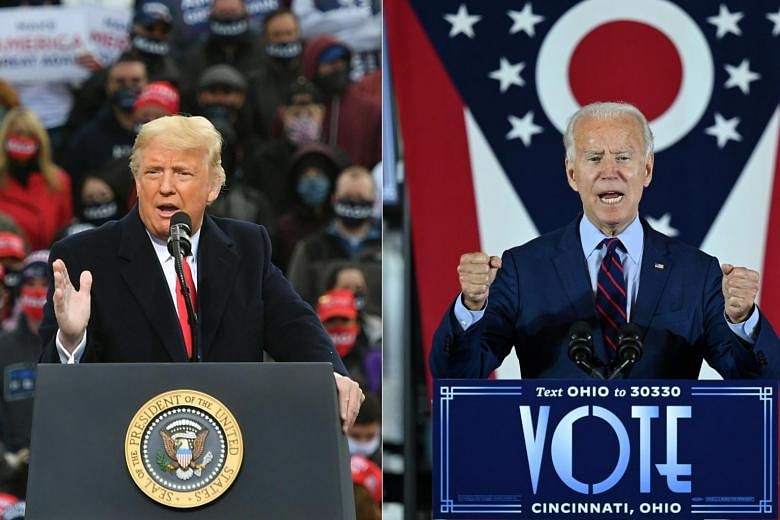From security to trade, who sits in the White House matters a lot for the region. How different will a Biden administration be from Trump's? Asian Insider looks at the issue.
US election: Foreign policy continuity if Trump wins, return to mainstream diplomacy if Biden succeeds

If President Donald Trump squeezes out an election win and occupies the White House for another four years, there is little doubt there would be policy continuity, analysts say.
While reports suggest the President may change his Defence Secretary Mark Esper, Secretary of State Mike Pompeo will remain in the Cabinet, his loyalty burnished by his beaming in from Jerusalem at the Republican National Convention to support his boss.
China hawks such as economic adviser Peter Navarro will also remain in place. And the President is likely to demand more burden sharing from allies in return for troops on their soil - an issue for South Korea and Japan - or else he will withdraw some of them.
US election: Experts say Beijing ready to 'coexist' with the US, no matter who wins

Whoever wins the US presidential election next week, what is certain is that the relationship between Beijing and Washington has irrevocably changed and the hawkish stance towards China is likely to continue, analysts say.
Amid a trade war that never quite reached a detente and spiralling diplomatic relations also lie the conundrums of Hong Kong and Taiwan.
For the Chinese leadership, a win for either President Donald Trump or Mr Joe Biden will each bring its own set of challenges, but it would end the current China bashing that has dominated American politics, said Mr Wang Huiyao, an adviser to China's Cabinet and founder of the Centre for China and Globalisation, a Beijing think-tank.
US election: US ties with allies South Korea, Japan 'not well managed', says experts

US President Donald Trump's biggest achievement in East Asia would be his historic summit with Mr Kim Jong Un in Singapore in 2018, which marked the first time a sitting American leader met his North Korean counterpart to resolve the nuclear issue.
Mr Trump should get "due credit" for the meeting, said Dr Lee Seong-hyon of the Sejong Institute think-tank. But beyond that, he "really demonstrated an inability to comprehend the importance of allies for the US", Dr Lee told The Straits Times.
Most experts agree Mr Trump mismanaged strategic alliances with Japan and South Korea, extracted empty promises from North Korea and failed to curb China.
US election: No one candidate ticks all the boxes for South-east Asia

It is not as clear as day who will be better for South-east Asia: Mr Donald Trump or Mr Joe Biden.
"There are upsides and downsides," said research fellow Lucio Pitlo III at the Asia-Pacific Pathways to Progress Foundation.
If Mr Trump is re-elected, he will likely continue his transactional, go-it-alone way of dealing with both allies and adversaries, with rancour and unpredictability.
US election: Cosy US-India ties, no matter who is in Oval Office

In February, when President Donald Trump visited India, Prime Minister Narendra Modi was effusive in his praise for the United States leader at a massive rally in Gujarat, the home state of the Indian PM.
He said ties were "far greater and closer", and praised Mr Trump as a leader "who thinks big".
The camaraderie between the two men indicated the comfort level in the relationship between the two sides, something with rare bipartisan support in the US where Democratic presidential nominee Joe Biden is also a proponent of close ties with New Delhi.
Trump, Biden and South Asia through the Indo-Pacific lens

Next week's United States presidential election is being closely watched in South Asia. Senator Kamala Harris is certainly a draw as she could be the first American vice-president of Indian heritage should the Democrats win.
But the interest in the election outcome goes beyond Senator Harris' background. The ties that bind the US and South Asia have grown in recent years, in many varied ways. At one level, the Indian diaspora in America is being wooed with some intensity by both the Democrats and Republicans.
While the diaspora stands at 4.5 million, the voters are said to be around two million, with small but significant numbers in some battleground states that are expected to pick the winner in the presidential race.
The real reasons for Pompeo's visit to Asia

Less than a week after his arrival in Jakarta, United States Secretary of State Mike Pompeo may turn into a lame duck foreign minister, along with his boss, President Donald Trump. But President Joko "Jokowi" Widodo will not underestimate Mr Trump's chances of re-election.
Neither will he squander the opportunity of Indonesia-US defence cooperation that his Defence Minister Prabowo Subianto has gained from his recent trip to Washington.
Indonesia, as well as all of Asean, needs a strong US military presence in the region, amid escalating tensions in the region, now that China has become more assertive in its claim over a large swathe of the South China Sea.
LISTEN TO ASIAN INSIDER PODCAST
For live updates and results, follow our US election live coverage.

